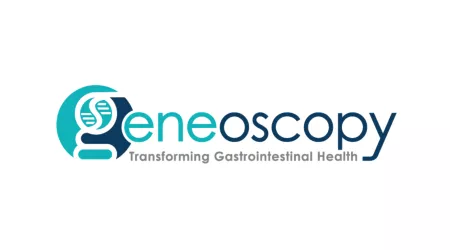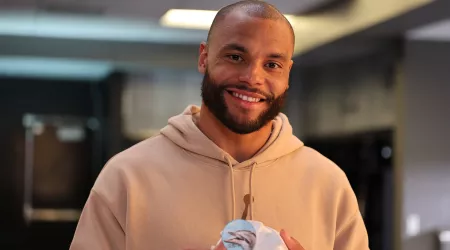Every day matters: Diagnosed during COVID-19
Jason Zachary works at a top law firm practicing corporate law. Day in and day out, he advises boards of directors and executives on a range of complex legal matters.
“It’s easy to get prideful and caught up in that,” Jason said, which helps explain why he hadn’t paid more attention to his ongoing abdominal discomfort. Like most people would, Jason attributed the issues to his diet, so he explored changes to his diet, including adding probiotics.
But the discomfort continued, drawing concern from his wife.
“She’d been urging me for a couple of months to get it checked out,” Jason said. When COVID-19 hit and Jason started working at home, his wife noticed he was going to the bathroom more often. With her encouragement and the slower pace of working from home, Jason reached out to a gastroenterologist for a virtual check-up.
Clinics across the country, however, were facing staff reductions to promote safety during the pandemic. It was about a month later when Jason, at age 48, finally received a colonoscopy — the first one performed at his chosen facility since the pandemic began, he said.
Despite having no family history of colorectal cancer — and a line of long-living relatives, including his paternal grandmother who turns 100 in two weeks — doctors found what was determined to be metastatic stage IV colon cancer.
“The extent of my medical history was a sprained ankle back in high school,” Jason said. “I try and live a fairly healthy lifestyle. I still run daily, play golf, ski, mountain bike, and hike. I wasn’t on any medications besides Claritin-D, so the last thing I expected to hear was that I had cancer."
“Now knowing it’s cancer, you realize how every day makes a difference because you know that cancers tend to spread quickly,” he said. “Every day matters, especially when you know it has spread.”
As a lawyer, Jason naturally dug into the details of his disease, but he balances the statistics and biological details with an astute understanding that each person with cancer is different.
“As you learn more about cancer and start digging into stage IV, especially its low survival rates, it becomes a fine line between getting the info to know what’s best and getting defeated,” Jason said. “My colorectal surgeon recommended that I stay focused on the next step, which resonated with me. So I try to just do that.”
For treatment, Jason’s team of doctors opted for robotic surgery, a type of laparoscopic surgery, ahead of chemotherapy. The procedure allowed for quick recovery time, freeing Jason from the hospital within three days.
“My colorectal surgeon was phenomenal,” Jason said. “He instilled confidence in the treatment plan and his friendship was instrumental in getting me through those first few weeks after the diagnosis.”
While the surgery had little impact on Jason, the diagnosis remains difficult. In an interview with CBS Denver, Jason said “your biggest worries are for your family.” The father of three boys under the age of eight thinks about what life would be like for his sons if he were to pass away. His Christian faith, he said, brings joy and strength in the midst of the suffering, “revealing God’s grace in new depths.”
“I’m hopeful for a long and healthy life, and in 30 or 40 years, I’d like to look back and see what came out of this,” Jason said. “[Cancer could help me] live these next years more present, more grateful and enjoying the little things in life; it has helped re-order the loves of my life and for that, I’m grateful. I’m hopeful that my story will help others know that they are not alone and organizations like the Alliance and the colorectal cancer community are here to listen and help in any way possible. Let’s help each other get through it.”
Olympus is partnering with the Colorectal Cancer Alliance in 2020 to raise awareness of colorectal cancer screenings and help people get screened.
Top resources

FDA approves ColoSense, mt-sRNA screening test from Geneoscopy
ColoSense is a screening test for adults, 45 years of age or older, who are at average risk for developing colorectal cancer (CRC).

Legislation introduced to address young-onset CRC
Explore the urgent need for the Colorectal Cancer Early Detection Act (HR 7714), legislation aimed at combating the rising incidence of colorectal cancer among younger adults through enhanced screening, education, and research.

Dak Prescott joins Alliance to ‘LEAD FROM BEHIND’
Initiative aims to reduce stigma and educate about screening choices, as the Colorectal Cancer Alliance launches a health equity fund to decrease disparities.





